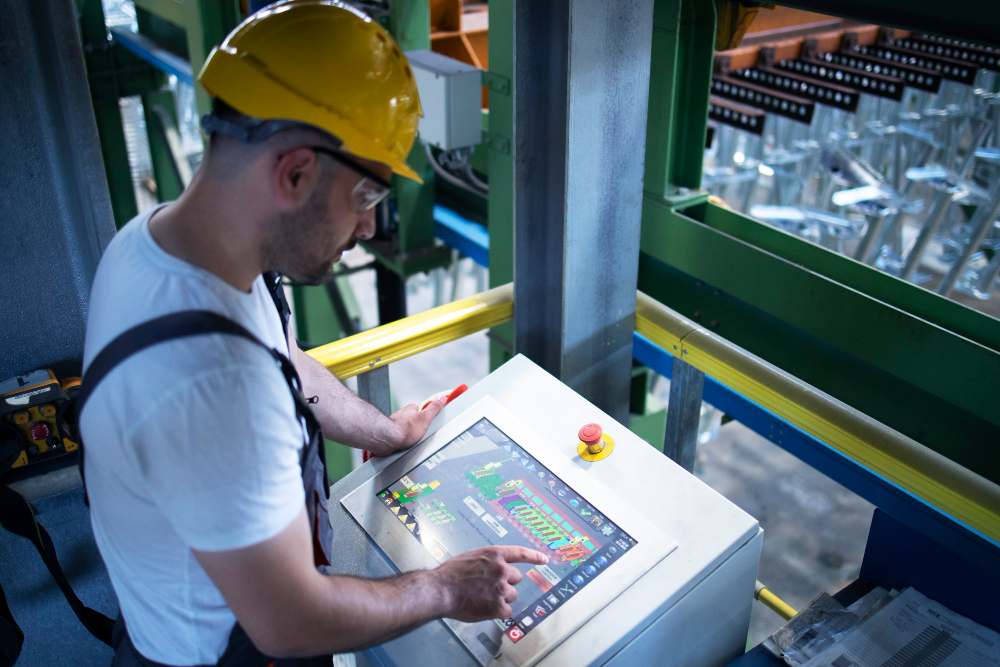In the manufacturing and production world, new technologies and strategies emerge every year, shaping how products are made and delivered. As industries embrace innovation, manufacturers are looking to adopt practices and tools that boost efficiency, reduce costs, and drive sustainability. Let’s discuss six key trends that are making waves in manufacturing, each with the potential to redefine how we produce and distribute goods in the years to come.
Digital Transformation is Changing Electronics Manufacturing?
In the electronics manufacturing sector, digital transformation has become essential for keeping up with complex global demands. This shift involves the integration of advanced digital technologies into all areas of production, creating an ecosystem where data flows seamlessly across the entire operation. Digital transformation enables manufacturers to automate processes, optimize resources, and improve product quality, all while reducing costs.
For electronics manufacturers, the benefits of digital transformation include real-time monitoring, predictive maintenance, and enhanced communication between departments. By digitizing traditional processes, companies can quickly adapt to changes in demand, identifying potential issues before they disrupt production. Plus, the data collected provides insights that inform decision-making, allowing companies to fine-tune operations with precision.
Production Management Software is the Backbone of Modern Manufacturing
Efficient production is the foundation of a profitable manufacturing operation, and production management software has become a critical tool in achieving that. This software is designed to oversee and coordinate every aspect of the manufacturing process, from inventory management to scheduling, ensuring that production flows smoothly from start to finish.
For modern manufacturers, production management software provides a centralized view of all activities, allowing for better planning, reduced waste, and faster response times. When production data is readily accessible, teams can make adjustments on the fly, minimizing downtime and maximizing productivity. This technology also helps to track key performance metrics, providing insights that drive continuous improvement.
3D Printing is Changing the Game for Customization and Prototyping
3D printing has moved from being a futuristic novelty to a practical tool for manufacturers seeking flexibility and customization in production. This technology allows manufacturers to create prototypes, custom parts, and even fully functional products layer by layer, directly from digital designs. For industries that need rapid prototyping or customized solutions, 3D printing has proven to be a valuable asset.
The speed of 3D printing enables companies to bring new products to market faster, testing and iterating designs without the time and expense of traditional manufacturing methods. As the technology advances, 3D printing continues to become more affordable and versatile, offering manufacturers the chance to experiment with innovative materials and complex geometries.
Manufacturers Are Moving Toward Sustainability
Sustainability has become a core priority for many manufacturers that are ready to minimize their environmental impact and meet newer regulatory standards. As concerns about climate change grow, customers and governments alike are pressing companies to adopt greener practices. In response, many manufacturers are working to reduce waste, lower emissions, and conserve energy across all stages of production.
One key approach to sustainability is the shift toward circular manufacturing, where products are designed for reuse, recycling, or repurposing at the end of their lifecycle. By incorporating recycled materials or using renewable energy, manufacturers can significantly reduce their carbon footprint. Plus, energy-efficient machines and waste management technologies are helping companies cut costs while reducing environmental impact.
Robotics Tech is Enhancing Efficiency in Manufacturing
Robotics have become a staple in manufacturing, particularly in tasks that require more precision, speed, or repetitive actions. From automotive assembly lines to electronics production, robots are increasingly used to handle labor-intensive or hazardous tasks. With the advancement of collaborative robots, or “cobots,” manufacturers can now integrate robotics without the need for complex safety measures, as cobots are designed to work alongside humans safely.
The efficiency gains provided by robotics are undeniable. These machines operate 24/7 without the need for breaks, except for maintenance and repairs. This enables manufacturers to increase production capacity and boost consistency on their lines. Advanced robotics solutions also allow for precise quality control, minimizing defects and ensuring consistent standards. For manufacturers looking to boost productivity while maintaining high-quality output, investing in robotics is an appealing solution. As the technology continues to evolve, robots are becoming more affordable and versatile, making them accessible to manufacturers of all sizes.



